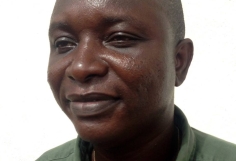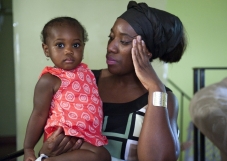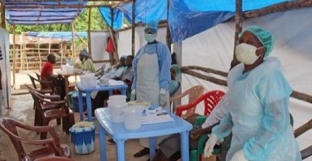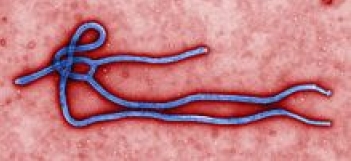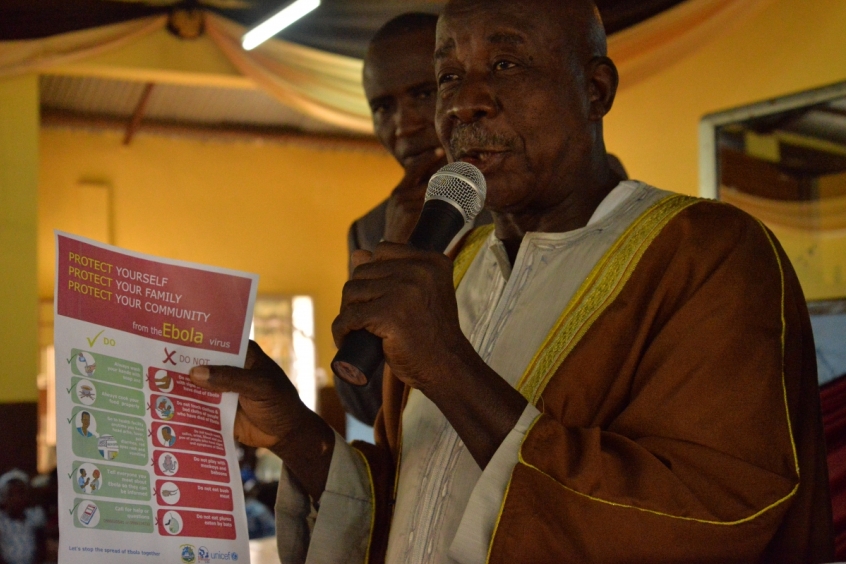
Politicians and health experts met in London yesterday to decide how to confront the Ebola epidemic in Sierra Leone, now on a scale that has overwhelmed the country's medical resources.
Ahead of the Defeating Ebola conference at Lancaster House, the international development select committee said that the cut in the UK aid budget may have hindered the response to the outbreak.
The British government is now making efforts to combat that lack, ploughing millions into the fight against the virus in Sierra Leone. But will it be enough to prevent the daunting projections of a worst case scenario?
"We needed the international community yesterday," said Allieu Bangura, national health advisor for World Vision in Sierra Leone. "The clock is ticking fast and we have to double our efforts if we are to catch up with the outbreak."
Ebola has so far killed 3,338 out of the 7,178 who have been infected with the virus, according to the latest figures from the World Health Organisation, making it the worst outbreak on record by a significant margin. The WHO has warned that these figures may be an underestimate.
The outbreak began in Guinea, then spread to Liberia and Sierra Leone. Cases have since been recorded in Nigeria, where the spread has been controlled, and the first case was seen in the US on Tuesday.
Liberia has been the worst hit, with 1,998 deaths by September 28. Anthony Banbury, head of the new UN Ebola emergency response mission (UNMEER), has said that the number of cases was doubling every 20 days.
"The world has now realized that the risk to the three countries would also affect the sub-region, the continent of Africa and the world as a whole, with the potential of affecting international peace and security," Banbury said in a statement on Tuesday.
At the request of the Sierra Leonean government, the UK is coordinating the international mission in Sierra Leone. The British government has committed an additional £20million to its original £100million plan to help stop the spread of Ebola in the country.
In addition, there are currently 40 British military personnel overseeing the relief effort, and more than 160 NHS staff are due to travel to Sierra Leone to help the struggling medical teams. The US, meanwhile, is focusing its efforts on Liberia, while the French concentrate on Guinea.
But the task for the international community is giant – and it's growing. The Centers for Disease Control said in September that in a worst case scenario between 500,000 and 1.5 million people could be infected by mid-January.
"The projection of CDC is the worst case scenario and the slow pace of response from the international community, if not fast tracked, will certainly lead us to that," Bangura said.
"We have a very narrow window of opportunity to act," he added.
International investment and commitment within the next two weeks could make a big difference. Save the Children has said Ebola is spreading in Sierra Leone at a "terrifying rate", with five people infected with the virus every hour – far exceeding the capacity of the medical staff and treatment centres available.
There were 765 new cases last week and only 327 hospital beds in the whole country. Dealing appropriately with those who have died from infection is an important part of containing Ebola as the virus can survive for up to three days after death, but it also presents another strain on resources.
"Dead bodies are not immediately taken away because of logistical problems, communication and lack of adequate coordination," Bangura said.
The man diagnosed with Ebola in Dallas, Texas this week will undoubtedly receive expert care. But where the US has the necessary infection control units to make further spread unlikely, West African medical clinics were not at all prepared for the outbreak which has strained resources to breaking point.
Health facilities in Sierra Leone lack basic medical supplies for control, and the medical staff lack the training to respond to this kind of outbreak, especially one on such an unprecedented scale. Four Sierra Leonean doctors and more than 30 nurses have died having contracted Ebola while treating infected patients.
Those trying to combat the virus through education about sanitation have encountered a number of superstitious beliefs that have created an additional obstacle to disease control.
World Vision has been working with church pastors and imams to help educate their communities about ways to prevent Ebola spreading, but more needs to be come to override suspicion of preventative methods and the medical care that can help.
Before the virus is even under control, there are other consequences to consider. At least 3,700 children have been orphaned by the epidemic in the region, according to Unicef. And while other family members would usually take in orphaned children, many are being shunned as their communities fear infection.
With the prospect of an escalating crisis ahead, it is clear that a swift international support is needed to help communities struggling under the strain of sickness, death and fear. "We need more hands in this fight," Bangura said.










